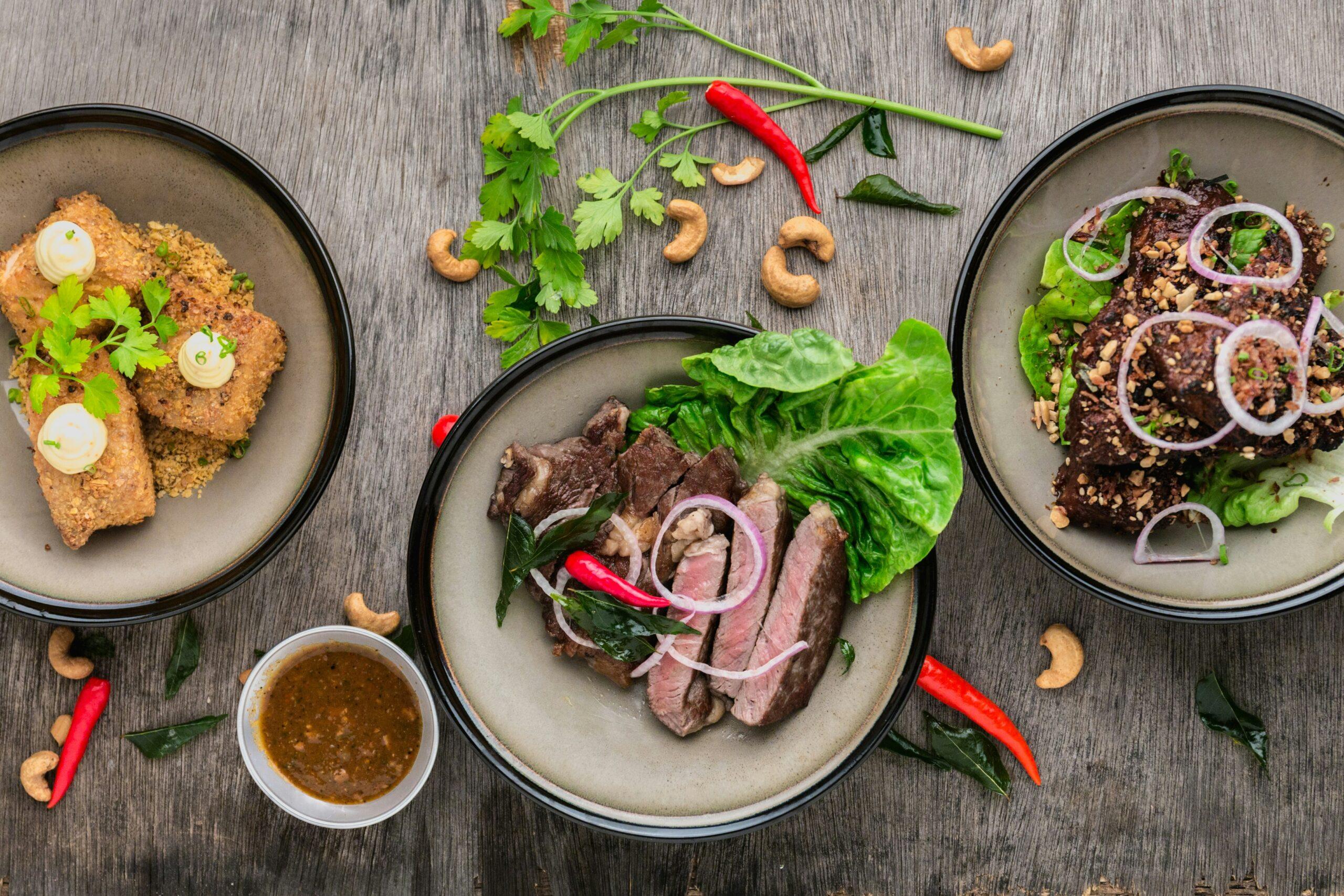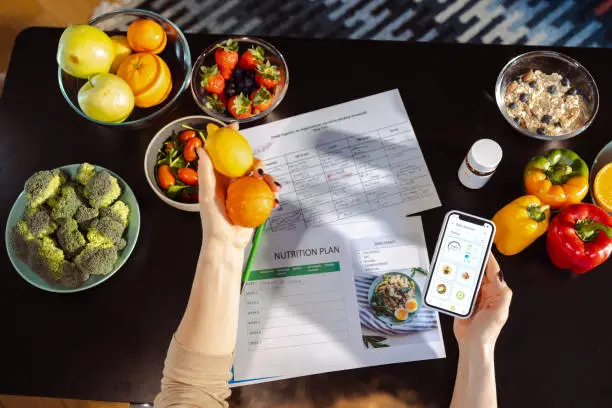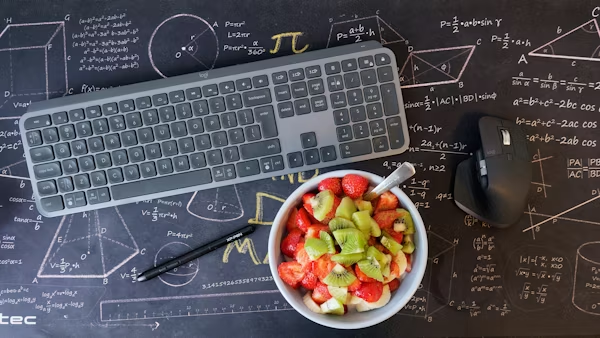Intuitive eating sounds like a dream, right? Eat when you’re hungry, stop when you’re full, listen to your body, and choose foods that feel good. No calorie counting, no strict rules, no guilt. Just you, your body, and your plate living happily ever after. If only real life were that simple.When Real Life Gets in the Way of Intuition

The truth is, intuitive eating can be a beautiful and healing way to relate to food—but let’s not pretend it’s always easy. Especially when you’re juggling work, school, family, stress, errands, and maybe even a dog that keeps begging for a walk right when you’re trying to figure out what’s for dinner. In theory, you’d love to pause, tune in to your body’s signals, and decide what would feel best to eat. In reality, you’re tired, there’s nothing ready, and your body is mostly saying “just feed me something—anything—before I lose it.”
And that’s one of the big problems. Intuitive eating asks us to check in with our hunger cues and make thoughtful food choices. But in the middle of a chaotic day, when your blood sugar’s dropping and the only thing within reach is a granola bar from three months ago, those cues are harder to hear. Hunger turns into hanger, you rush your decisions, and suddenly you’re eating whatever’s available—not because it feels right, but because you don’t have the energy to think.
Why Modern Life Isn’t Exactly Ideal for Intuitive Eating

Modern life is noisy. It’s full of distractions, pressure, schedules, and messages telling us what we should or shouldn’t eat. With so much going on, it’s no wonder our natural signals get drowned out. Stress, lack of sleep, hormones, and even medications can mess with hunger and fullness cues. And let’s be honest—many of us learned to ignore those cues for so long that it now takes real time and effort to recognize them again.
Then there’s another layer—not just the chaos of life, but the physical symptoms that can blur the lines even more. If you’re dealing with digestive issues like bloating, reflux, or unpredictable bathroom habits, it’s hard to trust what your body is saying. One day a food feels fine, and the next day it’s a total disaster. Or maybe you’re navigating weight challenges and have spent years bouncing between diets, unsure what “hungry” or “full” even feels like anymore. This is incredibly common, and it’s okay if your inner signals feel scrambled. That doesn’t mean intuitive eating isn’t for you. It just means you might need a little more support to tune back in—and this is exactly where meal planning can help.
Meal Planning Isn’t About Perfection—It’s About Support
Now, before you roll your eyes and think, “Ugh, planning every meal? Sounds like a diet,” hear us out. Meal planning doesn’t mean locking yourself into rigid menus or prepping 47 identical containers of chicken and rice. It means creating a flexible plan that helps support your body when life gets messy—which, let’s face it, is most of the time.
Having meals and snacks ready (or at least semi-prepared) can actually make intuitive eating easier. Meal planning creates a steady rhythm of nourishment, helping your hunger cues stay clear instead of chaotic. It also takes the pressure off decision-making—especially at the end of a long day when your brain is officially closed for business. With a plan in place, you have more space to pause, check in with yourself, and make choices based on care, not just convenience.
Think of meal planning like setting the stage. You still get to improvise, but now you’ve got a few props and a spotlight. You might plan a balanced lunch, but if you wake up and feel like having it for breakfast instead—go for it! If you’ve got a veggie stir-fry planned but your body is craving something more comforting, you’re not stuck. You’ve got options, because you’ve already taken care of the hard part: thinking ahead.

Meal planning also makes it easier to include foods that truly satisfy you. Not just physically, but emotionally too. You can plan for foods you love, mix in variety, and try new things without the last-minute panic of “what’s for dinner?” You’re not following a rulebook—you’re making life smoother so you can actually listen to your body without the background noise of stress and decision fatigue.
Intuition gets tricky when your body’s being dramatic
Intuitive eating can get even trickier in certain situations—especially for those dealing with specific health conditions like diabetes, PCOS, or food allergies, as well as those navigating chronic bloating, IBS, or an ongoing love-hate relationship with their digestion. Many people need to blend intuitive eating with practical structure and symptom management. That doesn’t make it less intuitive; it just means your body has unique needs, and you’re honoring them. Meal planning can help you stay consistent, feel more in control, and avoid those energy crashes or food choices that lead to discomfort later.
It’s the same for people working through weight concerns. Maybe you’re trying to reach a healthier weight, or maybe you just want to feel stronger, more energized, or more confident. If so, waiting until you’re ravenous to decide what to eat might not be the most helpful approach. Planning ahead gives you a chance to nourish yourself thoughtfully, without swinging between restriction and overeating. It’s not about rules—it’s about rhythm.
You Don’t Have to Choose—You Can Have Both
So no, intuitive eating isn’t broken. But it’s not a magic solution either. In the real world, where we’re all just doing our best, it makes sense to give ourselves a little extra help. Planning ahead doesn’t cancel out intuition—it protects it. It gives you the space and support you need to make choices that actually feel good, both in the moment and hours later.
At the end of the day, your relationship with food should be kind, flexible, and real. There’s no need to choose between structure and freedom—you can have both, and you deserve both. And if you’re still not sure how to find that balance, that’s okay. A registered dietitian can help you bridge the gap between where you are and where you want to be—with no judgment, no food police, and no shame if you had toast for dinner last night. Again.
Ready to Stop Guessing and Start Feeling Better?
Let’s create a personalized meal plan that supports your body and your lifestyle—no strict rules, no guilt, just real-life balance. Message us today or click here to book your first session!



